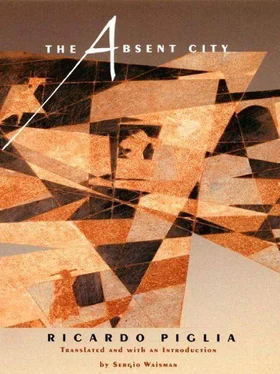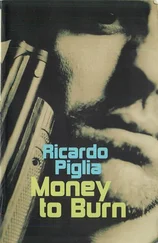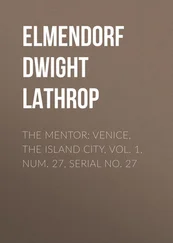“So you are willing to collaborate with us,” Doctor Arana asked her.
“In exchange for what?” Elena asked.
She was trying to buy time and put together a line of defense. She was afraid of betraying herself and being forced to inform. She knew about the ones who went out into the streets and sold out everyone they knew. They wore masks made of synthetic skins and rode for hours in patrol cars through the center of the city.
“In exchange for curing you,” Arana said.
“I am not interested in being cured, I just want to change hallucinations. Is that possible?”
Arana served himself some mineral water in a plastic cup.
“We could disconnect you,” he said, “but that is very expensive.”
“Money is not an issue with me,” she said.
“It will be necessary to work on your memory,” Arana said. “There are areas of condensation, white nodes, which can be untied, opened up. They are like myths,” he said; “they define the grammar of experience. Everything the linguists have taught us about language also applies to the core of living matter. The genetic code and the verbal code present us with the same characteristics. That is what we call the white nodes. The clinic neurologists can attempt an intervention. It will be necessary to work on your brain.”
They were going to operate on her. She felt sluggish and empty, she was afraid they had disconnected her.
She thought about the Tano, running away from Rosario, saying he belonged to the PRA, the People’s Revolutionary Army, but the PRA no longer existed. She pictured him going in and out of detox clinics, lost in a virtual reality, hidden in clandestine houses and getting caught again, evading the controls, living in subways. He was a rebel and she was the heroine, a Mata Hari, a double agent, a confidant for anyone in dire straits. She had to get out, return to the streets. She saw the Tano’s room in the Bajo, near the port. She was going to contact him, he was the only one who could plan an escape for her. But she had to forget, she could not compromise the plans. She destroyed the meeting on the platform at Retiro Station, the bums toasting stale bread over a small fire, the Tano and her getting on the train. She knew how to erase her thoughts, like someone forgetting a word they were about to say. They would not be able to make her talk about what she did not know. A navy officer appeared, and she thought she saw armed men in the hallway behind him.
“See, captain,” Arana said, “this woman says that she is a machine.”
“Very beautiful,” said the man dressed in white.
Elena looked at him with scorn and hatred.
“You’re an ex, there are only patients here.”
Arana smiled as the light slid down his skin. He had aluminum teeth, a very expensive ultralight crown of the kind only made by Gucci, the artist, in the clinics in Belgrano R neighborhood.
“Take it easy,” he said. “If you want to be cured, you have to collaborate with us. The captain will help you remember. He is a specialist in artificial memory.”
“Madam,” the officer said, “we would like to know who Mac is.”
They knew everything. She had to escape. She had fallen asleep, but now she was awake and made an effort to keep going. It was getting dark, the light from the large billboards was starting to fill the air with bright faces and images. The Tano came out of the subway and up an escalator at Diagonal Station. The pleasant spring breeze and the smell of the lime trees in the avenue produced a sudden happiness in her. Elena leaned against the window of the Trust Jeweler shop. Multiple clocks read 3 P.M. They had merged the time zones everywhere in the world so they could coordinate the eight o’clock news. They had to live at night while the sun rose in Tokyo. It was better this way, the endless darkness worked to their benefit, they had nearly fifteen hours to get across the city and out to the open country. She pictured the still Pampas, the last towns like hills in the distance. They had already decided they would go live with the Irish, the Tano knew how to get into the Delta and meet up with the rebel ghettos. She had heard about Finnegans Isle, far up the Paraná River, on the other side of the Liffey, perhaps they could make it that far. It was populated by anarchists, the children and grandchildren of British settlers from Santa Cruz and Chubut Provinces. The Tano walked toward her among the crowd of workers and policemen and Bolivian immigrants heading south on Cerrito, downtown. She could make out his set, massive figure in the sea of anonymous faces. All of them, and perhaps she as well, in a hospital bed.
“Then,” Arana said, “where did you meet him?”
“In a boardinghouse in Tribunales, near the courthouse,” she said.
She was afraid. They were getting closer to the truth, as if they could follow the road of the memories of her life on a map. They seemed to know more about her than she did. She was lying on an iron bed, she had the sensation of being opened up and felt the freezing air from the fan on her bones. The amphetamines were making her hallucinate, her thoughts were racing much faster than she could articulate them, ideas transformed into real images. She could not stop, she would awake from one dream and into another reality, she would find herself in a different room, in another life, she did not want to fall asleep again. If she could only live in an eternal state of insomnia. He never slept. He would rest, but he did not sleep, he watched over her while she was in the hospital, not daring to enter her room, he looked in from the outside, through the windows that faced the patio. He stayed awake through the nights, sitting on the cretonne couches in the waiting room. He was afraid that the doctors would inject her with anesthesia and take her to the operating rooms. Then they would be able to process her memory and unrecord the information. As long as she was in the machine, she could overcome matter and resist. “A body,” Mac said, “does not mean anything, the soul is the only thing that is alive, and it takes the shape of the word.” She knew that the anarchs had infiltrated several men into the Clinic. They had given her the name of a contact to use in case of a desperate situation. Reyes. A woman in the Majestic. For the time being she did not want to think about him. But it seemed to her that everywhere around her there were letters forming the word “Reyes.” Mr. Reyes, a dealer and a gangster and a professor of English literature. The crowd was getting thicker, making it more and more difficult for her to move forward. The Tano stood there, pale, taciturn, more melancholy than usual. He had run out of money, had spent the last of what he had on a taxi. He was the best explosives technician that they had ever had, and he did not want to have any problems with the police. Elena went up to him when they stopped at a red light. The cars headed down Av. Corrientes in discontinuous waves.
“We have to get to the island,” she said without looking at him. “I have a contact, but I am being watched.”
“Everyone is being watched,” he answered. And smiled at her. When he smiled he looked like a madman. Then he glanced at her out of the corner of his eye. “The first thing is to get into the Museum,” he said to her. “There’s nothing there anymore, it’s been abandoned, there are only a few remnants left.”
They were in the Carabelas alleyway, behind the enormous concrete building that housed the Mercado del Plata. The site had been used as barracks during the war, and old faded photographs of Perón still covered the walls. A multitude of refugees and vagrants proliferated through the galleries. The police did not dare enter the building, but the place was infected with government agents. She had the feeling of being lost, of having lost her sense of reality.
Читать дальше












